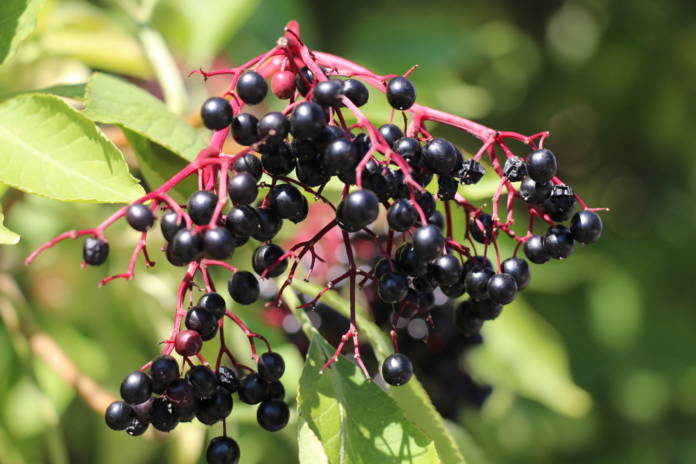Austin, TX—The ABC-AHP-NCNPR Botanical Adulterant Prevention Program (BAPP) has published Botanical Adulterants Prevention Bulletin (BAPB) on European elder (Sambucus nigra, syn. S. nigra subsp. nigra) berry and berry extract adulteration. The BAPB was written by Stefan Gafner, Ph.D., the chief science officer of American Botanical Council (ABC) and director of BAPP, and herbal medicine expert and ABC advisory board member Josef Brinckmann, Research Fellow at Traditional Medicinals. Twenty-two medicinal plant experts from academia, non-profit organizations, contract analytical laboratories, government agencies, and the herb industry peer reviewed the bulletin.
The bulletin summarizes available published data on adulteration of elder berry & its extracts with information on:
- taxonomy
- therapeutic uses
- supply chain/value network
- market importance
- analytical methods to detect adulteration of the botanical.
Popularity of elder berry
The American Botanical Council (ABC) reported that preparations of the herb, also referred to as elderberry or European black elder, are commonly used to treat symptoms of upper respiratory infections associated with colds and flu, with clinical studies supporting its benefits in the treatment of symptoms of the common cold. There was a rapid increase in use recent years, with the COVID-19 pandemic fueling sales. In the United States, according to ABC’s annual Herb Market Report, elder berry supplements were ranked as the top-selling herbal dietary supplement ingredient in the mass market channel and as the third best-selling botanical ingredient in natural retail stores in 2021, with sales totaling roughly $305 million in both channels.
Adulteration is a concern
The BAPP bulletin summarizes the currently available evidence of elder berry extract adulteration, derived from seven reports and publications (five of them from peer-reviewed journals). ABC said adulteration of elder berry preparations typically involves the undisclosed inclusion of black rice (Oryza sativa) extracts. Substitution with other anthocyanin-rich plant extracts or blue or purple food colorants has also been reported, ABC added.
Cost is a key issue here. ABC explained that, depending on the information source, genuine elder berry extract costs up to 30 times more than black rice extract.
“Elder berry is one of my favorite phytomedicinal ingredients and one that I have used on numerous occasions over the past years," Dr. Gafner said. "The relatively widespread occurrence of elder berry extract adulteration with extracts of black rice documented in the new bulletin is disturbing. However, recent discussions with responsible members of the herb and dietary supplement industry suggest that the elder berry market has been stabilizing. Some of the new brands that entered the market at the height of the elder berry demand cycle, and which may have — unbeknownst to them — been selling adulterated products, appear to have exited from the market. Therefore, the quality of available elder berry dietary supplement products may have improved in recent months.”
ABC Founder and Executive Director Mark Blumenthal added, “As with other BAPP publications that clarify that some botanical ingredients in popular dietary supplements are subject to adulteration, the new BAPP Elder Berry Bulletin will be used as a reliable resource for research and development, quality control, and purchasing departments by many responsible members of the global medicinal plant community that adhere to appropriate and responsible best practices to help ensure the authenticity of the ingredients used in their consumer products.
“If the entire herb and dietary supplement industry were comprised of ethical players — of which there are many — we wouldn’t need BAPP’s efforts to help reduce and eliminate the sale of adulterated and fraudulent ingredients. Unfortunately, history tells us time and again that there are individuals and companies whose pursuit of profits outweighs their commitment to the welfare of consumers who use products with their questionable ingredients. Fortunately, there are many responsible companies that do care about quality and the consumer experience, and we’re deeply grateful to them for their support of BAPP’s mission.”
As with all BAPP publications, BAPBs are freely accessible to ABC members, registered users of the ABC website, and all members of the public on the program’s website (registration required).










